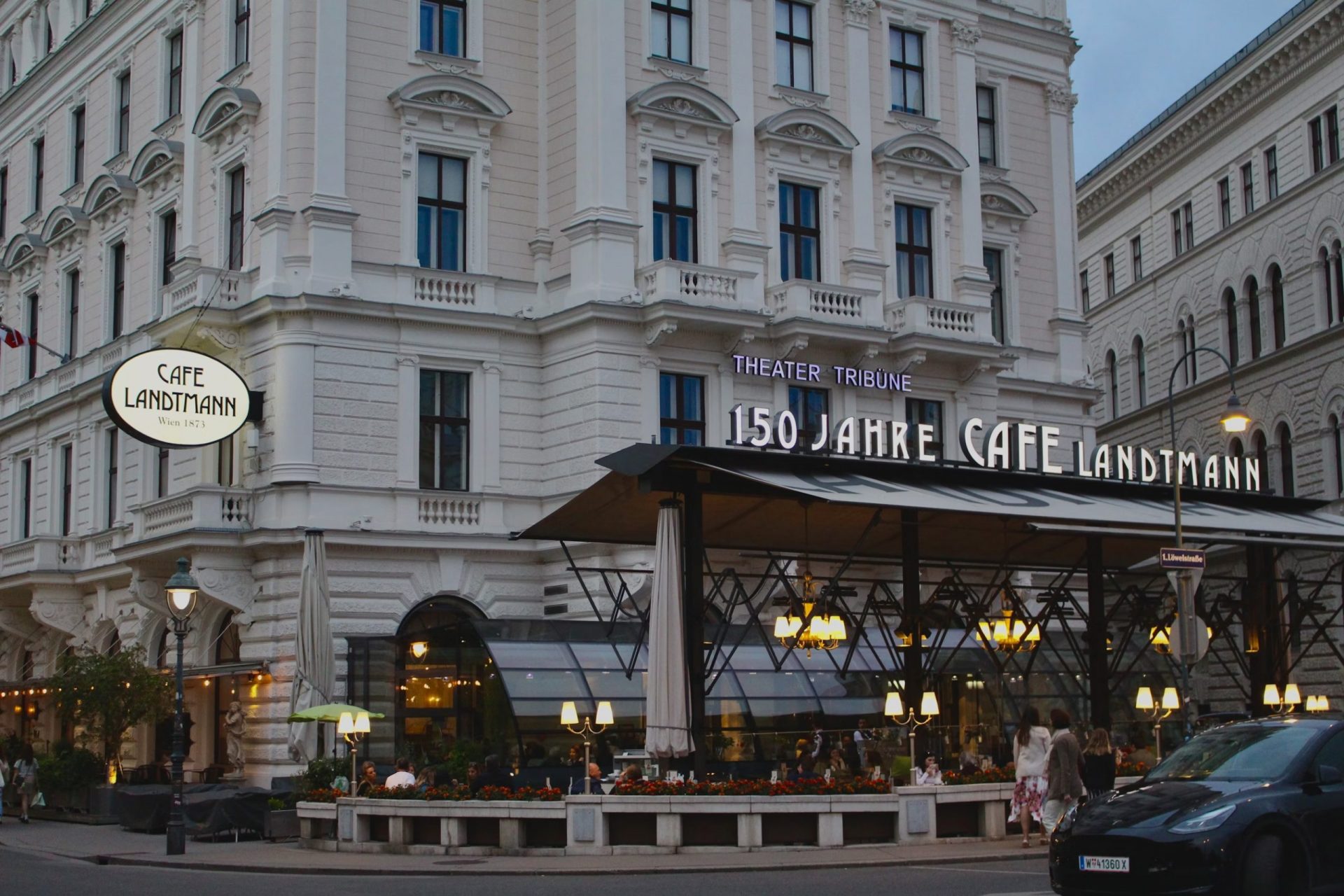Experience Travel Insights
On the Couch in Freud’s Vienna: A Tour of the City’s Secret Psyche
by Long Lin-Maurer • September 24, 2025

Unlocking Freud’s Vienna: A Journey into the Mind of a City
To walk through Vienna is to walk through layers of history—imperial grandeur, artistic revolution, and intellectual ferment. Yet beneath the opulent facades of the Ringstrasse and the cheerful melodies of the waltz, another Vienna exists. It is a city of the mind, a complex psychological landscape of dreams and repressed desires. No one understood this hidden city better than Sigmund Freud, and to explore Freud’s Vienna is to gain a key not only to the birth of psychoanalysis but to the very soul of the modern world, shaped by the birth of psychoanalysis in Vienna.
Come and experience travel!
Personally designed, seamlessly delivered – your journey, our expertise!
We are a boutique travel agency and consultancy specializing in Hub & Spoke Tours across Central Europe, the Benelux and the Dolomites.
Turn-of-the-century Vienna was a dazzling paradox. As the capital of the sprawling, multi-ethnic Austro-Hungarian Empire, it was a crucible of creativity, home to Gustav Klimt, Egon Schiele, Gustav Mahler, and Ludwig Wittgenstein. Yet this glittering surface masked deep-seated tensions: a rigid social order, simmering ethnic nationalisms, and rising political antisemitism. It was in this fertile, fraught environment that Freud embarked on his revolutionary exploration of the human unconscious, effectively placing the city itself on his analytical couch.
Berggasse 19: The Heart of Freudian Vienna
The story of psychoanalysis has a physical address: Berggasse 19, in the respectable Alsergrund district. For nearly half a century, this was Freud’s home and practice. Today, the Sigmund Freud Museum occupies these rooms, but to see it merely as a collection of artifacts is to miss its essence. This was the crucible where a new science of the mind was forged. Here, patients reclined on the iconic Persian rug-draped couch and, through “free association,” journeyed into the uncharted territories of their own minds.
The apartment was a reflection of Freud’s own intellect. His study was famously filled with antiquities—Roman, Greek, and Egyptian statuettes. For Freud, these were metaphors for his work. He saw himself as an archaeologist of the mind, excavating buried memories and traumas to reveal the foundational structures of the unconscious mind. Walking through these rooms, one can almost feel the intellectual weight of the theories developed here, from the Oedipus complex to the tripartite model of the id, ego, and superego.
The Coffeehouse: Where Freud and Vienna Debated Ideas
While Berggasse 19 was the private laboratory, the Viennese coffeehouse was the public forum where ideas were sharpened. The Viennese coffeehouse culture was the lifeblood of the city’s intellectual scene, a “public living room” where for the price of a single coffee, one could spend hours debating. Freud was a creature of this culture, a regular patron of Café Landtmann on the Ringstrasse, among others.
These establishments were democratic spaces where artists and scientists mingled. It was in the smoke-filled atmosphere of the coffeehouse that the rigid hierarchies of the Habsburg court dissolved, replaced by a meritocracy of ideas. Here, Freud could meet with colleagues, critique new philosophies, or simply observe human drama. The coffeehouse was an essential extension of his study, a place where theories conceived in the consulting room were exposed to the intellectual currents of Sigmund Freud’s city.
A City of Dreams: The Vienna of Psychoanalysis
Freud’s seminal work, The Interpretation of Dreams, published in 1899, can be read as a uniquely Viennese document. He argued that dreams were the “royal road to the unconscious.” In many ways, fin-de-siècle Vienna itself was a city of dreams. The magnificent Ringstrasse, with its grand opera house and museums, presented a dream of imperial power and bourgeois order. Yet Freud taught us to look beneath the manifest content to find the latent meaning.
Come and experience travel!
We design bespoke travel experiences with a perfect balance of cultural depth, efficiency and comfort.
Specializing in seamless hub-and-spoke journeys, we create well-paced, immersive itineraries tailored to your interests.
Beneath this polished facade, the city was seething with neuroses. The strict moral codes of the era demanded emotional repression, leading to the widespread “hysteria” Freud studied. This societal repression found its parallel in the arts. While official art clung to historical themes, the artists of the Vienna Secession, led by Gustav Klimt, broke away to explore a more psychological reality. Klimt’s portraits captured the inner lives of Vienna’s elite, while the raw figures of Egon Schiele stripped away pretense to expose the tormented psyche. Art and psychoanalysis were engaged in the same project: making the invisible visible.
The Jewish Context: Understanding Freud’s Impact on Vienna
It is impossible to understand the Vienna of Freud without acknowledging its complex Jewish identity. By 1900, Jewish Vienna was a vital force in its cultural and intellectual life. Assimilated Jews were disproportionately represented in medicine, law, and the arts, shaping the city’s modernist culture while navigating a society where acceptance was conditional.
Freud, a secular Jew, was deeply embedded in this world. The first followers in his “Wednesday Psychological Society” were almost all Jewish. Psychoanalysis has often been called a “Jewish science,” recognizing the critical perspective that often comes from a marginalized position. Freud and his colleagues were adept at questioning received wisdom—a skill honed by their social reality. However, this brilliance existed under a gathering storm. The mayor, Karl Lueger, built his career on antisemitism, creating a climate that normalized hatred and would later provide fertile ground for Nazism.
The Final Act: The Anschluss and Freud’s Exile
The final act of Freud’s Viennese story is one of tragedy. With the Anschluss in 1938, when Nazi Germany annexed Austria, the Vienna that had nurtured his genius turned on him. His books were burned, his daughter Anna was interrogated by the Gestapo, and the family was forced to flee to London, where Freud would die a year later. The vibrant intellectual world he helped build was systematically destroyed, forcing the founder of psychoanalysis to abandon Sigmund Freud’s city.
Today, Vienna has a complex relationship with its most famous psychological pioneer. For decades, the city was hesitant to fully claim the man whose theories had exposed its anxieties. But that has changed. To seek out Freud’s Vienna now is to engage with the city’s full history. It is to stand at Berggasse 19 and contemplate not only the birth of an idea but also its forced expulsion. A Sigmund Freud’s Vienna tour is more than a historical walk; it is an intellectual journey. It is about learning to see the city as he saw it: a living organism with a conscious and an unconscious, a place of manifest dreams and latent truths. It is to realize that the questions Freud asked over a century ago—about identity, memory, and desire—are still the questions that echo through this endlessly fascinating city.
Exploring Freud’s Vienna: A Curated Selection of Cultural and Historical Insights
- Sigmund Freud Museum Vienna: Delve into Freud’s former residence and practice at Berggasse 19, now a museum preserving his legacy and offering insights into his life and work.
- University of Vienna – History of Medicine and Psychiatry: Explore the academic environment where Freud studied and taught, understanding the intellectual context of scientific and medical thought in late 19th-century Vienna.
- Wien Museum – Vienna 1900 Collection: Gain a broader understanding of “Fin de Siècle” Vienna, the vibrant cultural and intellectual milieu that profoundly influenced Freud and his contemporaries.
- Vienna History Wiki – Kaffeehaus (Coffeehouse) Culture: Discover the significance of Viennese coffeehouses as intellectual meeting points and public living rooms, where ideas like Freud’s often percolated and were discussed.
- Wiener Secession: Experience the artistic and architectural revolution of the Secession movement, a contemporary cultural upheaval challenging traditional norms, mirroring the intellectual shifts Freud instigated.
- Jewish Museum Vienna – Jewish Life in Vienna: Understand the rich and complex history of the Jewish community in Vienna, providing crucial context for Freud’s own identity and the societal dynamics of his time.
- Leopold Museum – Vienna 1900 Collection: Witness the artistic output of Freud’s era, including works by Klimt, Schiele, and Kokoschka, which often explored themes of human psyche and sexuality, paralleling Freudian thought.
- Austrian National Library: Explore the intellectual repository of Imperial Austria, where a vast array of scientific, philosophical, and literary works were housed, forming the backdrop for Freud’s extensive reading and research.
- University of Graz – History of Psychoanalysis: While focused on Graz, this provides a window into the wider academic acceptance and development of psychoanalytic thought within Austrian universities beyond Vienna.
- City of Vienna Official Website – 19th Century History: Obtain an overview of Vienna’s political, social, and economic developments during the 19th century, laying the foundation for the specific cultural and scientific advancements of Freud’s time.
